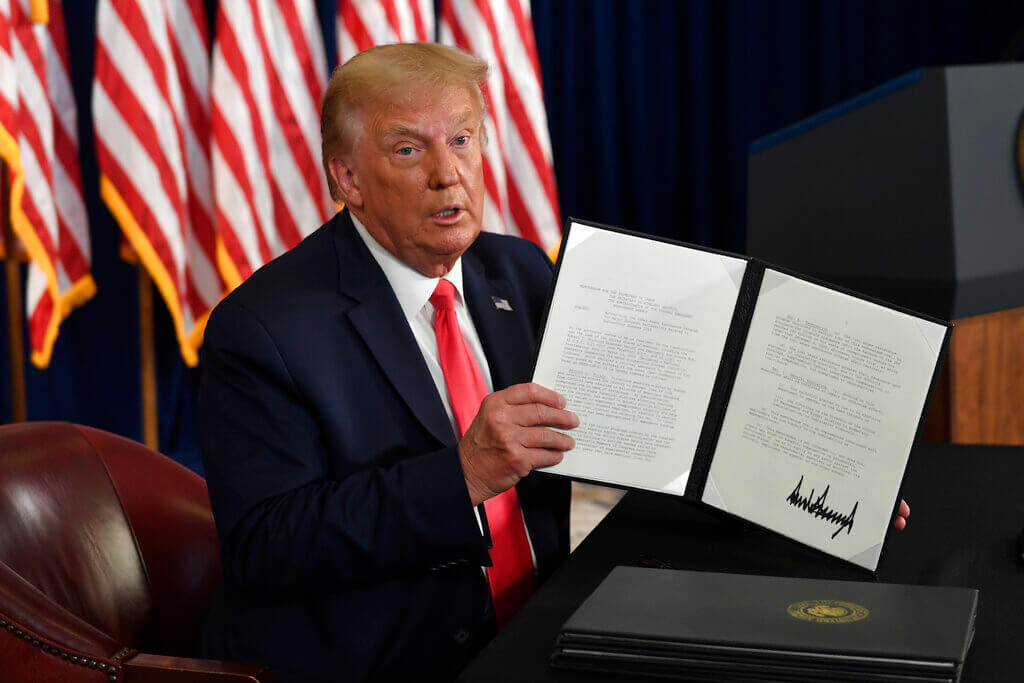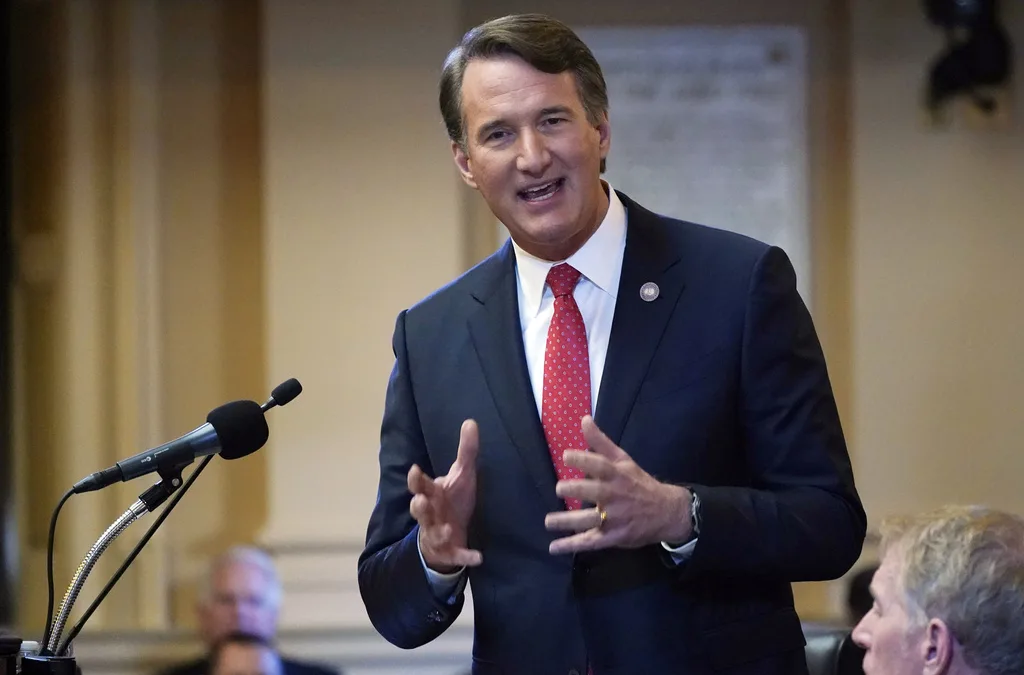
President Donald Trump hold up one of the four executive orders that he signed that addresses the economic fallout from the COVID-19 pandemic at his Trump National Golf Club in Bedminster, N.J. (AP Photo/Susan Walsh)
Payroll taxes fund both the federal health insurance program and the federal retirement program.
President Trump issued a memo freezing the payroll tax that funds Medicare and Social Security through the end of the year, starving programs that provide millions of Virginians with health insurance and basic living expenses of much-needed funding.
In Virginia, nearly 1.1 million retired workers get Social Security benefits to help them cover basic living expenses. And over 1.5 million Virginians depend on Medicare, the federal health insurance program for people age 65 and up, to help cover the cost of healthcare services.
After Trump’s stunt, the Center for American Progress (CAP), a liberal think tank, said that even if properly enacted through Congress, a payroll tax cut would be an exceptionally poor way to handle the current economic crises resulting from the pandemic.
“By definition, laid off employees and self-employed workers would receive zero benefit. The largest benefits would go to the highest earners who have not been affected by the COVID-19 crises-including potential CEOs and other executives,” CAP said in a statement.
In addition to being a gift for wealthier Americans, the payroll tax freeze accomplishes another Republican goal. For years, the GOP has worked to undercut Medicare and Social Security, citing a growing deficit, despite passing a massive tax cut in 2017 that grew the US deficit to over $1 trillion and failed to deliver promised benefits for the economy.
One of the most notable efforts came from Sen. Mitt Romney (R-UT) when he was running as the Republican presidential candidate in 2012. Romney proposed handing Medicare over to private health insurance companies, cutting funding, and turning it into a voucher system. Republicans have also dreamed of privatizing Social Security, which was a major policy focus for President George W. Bush in 2005.
President Trump said he wouldn’t cut Medicare or Social Security on the campaign trail, but his 2020 budget called for significant reductions in Medicare funding. And for the fourth year in a row, Trump has called for cuts to Social Security in that same budget, specifically targeting disability benefits.
The continued threats from the GOP to these two popular programs also contradicts public sentiment. According to Gallup, nearly two decades of polling on Social Security indicates that a majority of adults want Social Security left completely intact. Medicare also generally sees positive poll numbers in Gallup surveys.
And while Medicaid and Medicare are not the same, Medicaid is one of the largest public programs run by the federal government. As recently as last week, voters in Republican-led Missouri joined those in Oklahoma and other GOP-helmed states to expand lower-income public insurance options like Medicaid. This would seem to put Trump and other GOP politicians at odds with the general sentiment on tax-funded programs like Social Security and Medicare.
Medicare and Social Security will almost certainly come up on the campaign trail, if public sentiment on the popular programs is to be believed. While Republicans are bent on defunding the programs (and slashing federal Medicaid support), Democratic presidential candidate Joe Biden has pledged to keep Medicare as it is, ensuring there is “no disruption to the current Medicare system.” And on Social Security, Biden wants to increase funding to the program by having Americans with “especially high wages to pay the same taxes on those earnings that middle-class families pay.”
Politics

Opinion: The problem with Youngkin’s Charter-Lab schools push in 2024
The Problem Governor Glenn Youngkin introduced 233 amendments to the bipartisan budget so it was hard to know how to assess his budget–for example,...

What to know about Trump’s legal issues
Over the past year, former president Donald Trump has become the center of not one, not two, not three, but four criminal investigations, at both...
Local News

Virginia verses: Celebrating 5 poetic icons for National Poetry Month
There’s no shortage of great writers when it comes to our commonwealth. From the haunting verses of Edgar Allan Poe, who found solace in Richmond's...

Join the fun: Recapping Family Literacy Night’s storybook adventures
When’s the last time you read a book aloud with a loved one? If it’s difficult to answer that question, then maybe it’s time to dust off that TBR...




